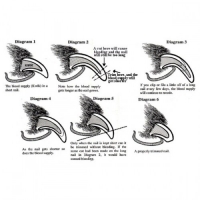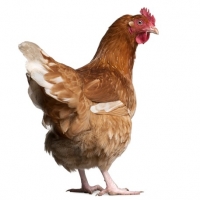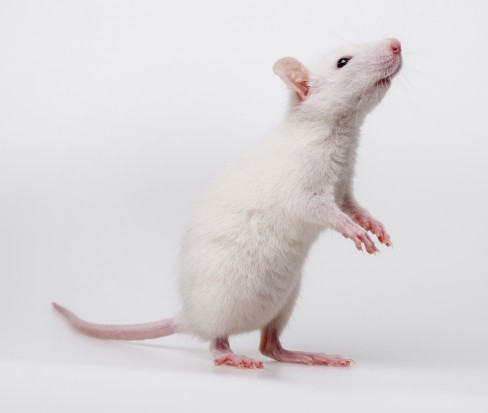

Just as in humans, dogs can suffer from many similar diseases and illnesses that we are prone to get. As a dog ages they start to feel the effects of time in much the same way as a middle aged person does, which means our lovely canine friends start to feel a few aches and pains more than they did when they were younger. It can be devastating to find out a pet has a serious and chronic illness but there are ways of coping with the situation. You need to stay strong so you can help your pet live a happy life by offering them all the supporting treatment and care they need.
Here is a little advice and a few tips that will help you cope with a dog that's been diagnosed with a chronic illness namely cancer or a heart condition, so they live a comfortable and happy life. However, as with a lot things health related it is also a very good idea to take a good look at your pet's diet and see where you can make it a healthier one should you need to.
Many dogs suffering with any sort of chronic illness or disease often benefit from a change in their diets. Although when changing a diet, it has to be done slowly so as not to cause any stomach upsets. It's a good idea to see just how many nutrients are contained in your pet's diet. This way you can see if it could be improved so that the diet complements any veterinary treatment your dog is receiving which includes any prescribed drugs they might have to be given.
By taking control of their diet you are effectively helping your pet during what is often a difficult time. As long as you discuss everything in-depth with your vet before making any changes to a diet and they agree to the changes, then you are on the right track. The one thing to bear in mind is that dog's suffering from a chronic disease often have quite fragile constitutions and health, so it is crucial that any dietary changes you make are the right ones to suit your pet's condition.
Whenever the word “cancer” comes up in a conversation, it can be very frightening. If your pet has been diagnosed with cancer it can be really hard to get your head around the idea of them having what is a frightening disease. Today, there has been so much research done on animal cancer that fantastic strides have been taken when it comes to treatments – so there's a lot of encouragement to be found when you discuss things with your vet.
Again, what a dog is given to eat can really impact how the cancer develops. If they are undergoing any sort of treatment, then a specialised diet can be very beneficial. It is believed that diets that contain protein and fat are great but carbohydrates need to be left out if a dog is suffering from any sort of cancer altogether and this includes the complex and simple ones.
Ideally a dog that's suffering from cancer should be fed a diet that contains between 50 – 60 percent fat and the protein content should be between 30 – 50 percent. The remaining calories should come from some sort of soluble fibre namely pectin, pea fibre or psyllium.
However, the fat should not be any sort of fat and again, ideally this should come from fish oil that contains the valuable omega-3s. Dog nutritionists also recommend feeding turmeric/curcumin to dog with cancer because studies have shown this helps prevent growths from spreading. This is due to the way it works as an anti-inflammatory and antioxidant hence encouraging cell death. Broccoli and cabbage also boast great antioxidant properties and can be fed cooked on a daily basis. Both vegetables prevent the naturally occurring glycosides which are found in vegetables from binding any iodine found in your dog's diet.
If your dog has been diagnosed with a heart condition, the best thing you can do for them is keep their weight under control. If you dog is overweight, then it's really important for them to shed the extra pounds. It's important you do this by altering their diet and increasing the level of exercise they do on a daily basis – remembering never to overdo it.
If your dog is overweight, the thing to remember is this will put extra pressure on their heart so a low calorie diet is essential but it should also be low in sodium too because dogs that suffer with heart conditions can have a real problem coping with too much sodium in their diets.
You need to take a close look at any pet food you regularly feed your dog to make sure there is enough taurine and carnitine in it. These are important amino acids and their function is to support the heart. The pet food needs to contain omega-3 fatty acids along with important vitamins E and C as well as CoQ10 which helps to support and repair any damaged cells found in the heart.
A lot of research has gone into heart conditions that are often seen in dogs, and studies have shown that Hawthorn berry could be very beneficial in the treatment of heart disease. This is because it improves the myocardial function which in short, strengthens the heart muscle. If you discuss supplementing your dogs' diet with a Hawthorn supplement with your vet, they would be able to advise on the sort of dosage to give them on a daily basis.
It can be hard to come to terms with things when a beloved pet is diagnosed with a very serious condition. However, as their owner, you can do everything possible to make their lives as comfortable as possible. The good news is that where cancer is concerned, vets can deal with many types much better these days than they could ever do in the past. When it comes to any sort of heart condition, again vets are so much more clued up when it comes to diagnosing heart disease and then treating the conditions that are commonly seen in dogs. All this gives pet owners the reassurance that their pets will live out their lives as comfortably and as happily as possible being extra well taken care of.
 How To Trim A Dogs Nails Easily At Home
The majority of dog parents rely on vets or groomers to
How To Trim A Dogs Nails Easily At Home
The majority of dog parents rely on vets or groomers to
 Why Raise Chickens?
Wondering about the reasons to raise chickens in your ba
Why Raise Chickens?
Wondering about the reasons to raise chickens in your ba
 10 Reasons Why You Should Own A Pet Rat
10 Reasons Why Yo
10 Reasons Why You Should Own A Pet Rat
10 Reasons Why Yo
 Dog-Friendly Holiday Accommodation: Questions You Need To Request Before Booking an area
Dog-Friendly Holiday Accommodation: Questions You Need To Request Before Booking an area
 Essential Equipment To Take With You On A Hack
Essential Equipme
Essential Equipment To Take With You On A Hack
Essential Equipme
Copyright © 2005-2016 Pet Information All Rights Reserved
Contact us: www162date@outlook.com